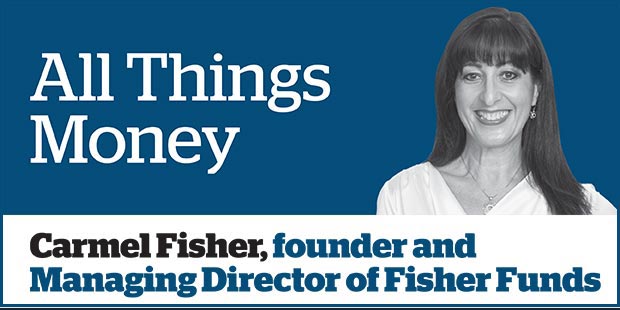Last week I received emails giving notice of an online sale where the prices were too good to miss. Presumably the purpose was to ensure I kept some cash up my sleeve, rather than blowing my spending money beforehand.
The emails reminded me of a phrase I heard early in my career, cautioning investors to "keep their powder dry".
The phrase originated from Oliver Cromwell in the 1642 English civil war, where he commanded his troops to "Trust in God but keep your powder dry". He was talking about gunpowder, unpredictable with moisture and useless when wet.
His message was twofold; he wanted his troops to remain calm but also to be prepared for an enemy attack. Dry powder allowed them to have the necessary resources on hand to respond quickly and protect themselves if necessary.
In an investment context, dry powder is cash and readily accessible assets used for both protection and to take advantage of opportunities as they arise.
It is similar to, but slightly different from, rainy-day money or cash under the mattress. They offer safety and protection whereas dry powder money is also meant to be used opportunistically.
Given all the market volatility we've experienced this year, especially in recent weeks, you'd think investors would be exhausting their dry powder reserves at a rapid rate. After all, investors are being attacked by the enemy (falling prices) left, right and centre, so they should be firing like there's no tomorrow.
But they're not. That's the funny thing about investing. Because markets and world events are so unpredictable, all investors - except the brave and super-confident - like to keep some money up their sleeves as they wait for the 'right' buying opportunity.
But when the right opportunities arise, we lose our nerve.
Investors don't react to a 20 per cent discount on the share market the same way we would at Briscoes or Countdown. While we love low prices when we are buying 'things', we don't leap into shares or bonds when their prices are low.
Fear and uncertainty get in the way and we start wondering whether low prices are the start of a bigger sell-off. Our fear of what might happen next overwhelms any sense of opportunity so, in a classic "fight or flight" moment, flight wins and our powder remains dry.
That's the paradox: when the sale we've long waited for finally arrives, we do nothing; sometimes we even panic and sell our existing investments at sale prices.
To make matters worse, we wait for an improvement in prices (the opposite of the good buying opportunity we were waiting for) and then we buy. If we're really lucky, the rebound will be slow enough for us to get in close to the lowest price. But often markets rebound quickly and the sale is over well before we've got our act together to buy.
I would not be so presumptuous as to call the market levels of recent weeks a bottom. While it feels like every worrying factor under the sun conspired to rattle markets in late August, there may well be more to come.
China could again be a concern or maybe Greece will rear its head again or perhaps interest rates will be the worry du jour. Whatever happens, in volatile times investors should learn to finesse their dry powder use. If they take Cromwell's lead, they will retain some cash and liquid assets to enable them to keep their cool, whatever happens to markets.
The other portion will be earmarked to fight the enemy. When the enemy fires, we should be prepared to seize the opportunity and fire right back.

